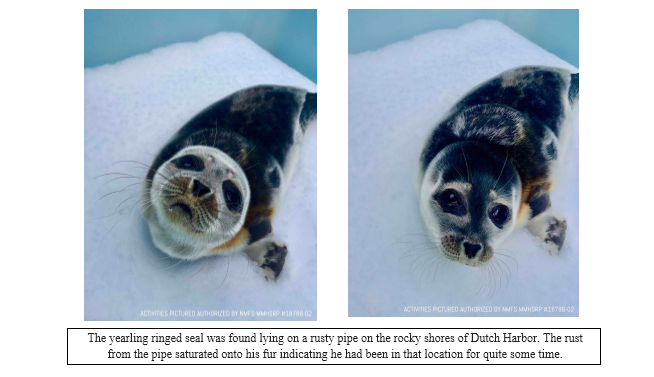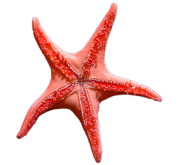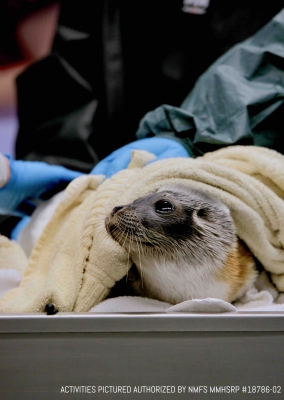The Alaska SeaLife Center Admits First Stranded Seal of 2018 March 19, 2018
Seward, AK (March 19, 2018)– The Alaska SeaLife Center (ASLC) has admitted its first stranded seal of 2018, a male ringed seal from Dutch Harbor. Following a record-breaking wildlife response year in 2017, ASLC’s team is more than prepared to rehabilitate the second patient of 2018.
Bystanders first spotted the animal lying on a rusty pipe on Dutch Harbor’s rocky shore. Unalaska resident and Alaska Sea Grant Agent, Melissa Good was called to the scene to further observe the
the animal. “When I approach an animal and it does not respond, that is the first indication something is very wrong,” Good states. The underweight seal’s balding coat and lethargic demeanor raised additional red flags for the Sea Grant Agent. With authorization from National Oceanic and Atmospheric Administration (NOAA) and ASLC, the seal was recovered from the shore and transported to Anchorage courtesy of PenAir where it was met by ASLC’s wildlife responders.
Once transported to the Alaska SeaLife Center on March 11, the seal was treated first for severe dehydration and malnourishment. Upon further examination, ASLC staff veterinarians found the animal to have lung worm, parasites, liver issues, a high white cell count, and an irregular molt. While this animal arrived in very poor condition, the staff remains cautiously optimistic as they begin 24-hour care. ASLC veterinarian, Dr. Kathy Woodie states, “Although this seal has a laundry list of health issues, his feisty demeanor shows promise.”
This animal is non-releasable due to the NMFS policy established for the four species of Alaskan ice seals. Ribbon, bearded, spotted, and ringed seals are considered non-releasable in the state due to consideration of subsistence hunters.
With the Alaska SeaLife Center responding to stranded marine mammals along 33,904 miles of coastline, Stranding Agreement partnerships, like Alaska Sea Grant are critical. Also necessary are charitable donations that are responsible for over 80% of the funding for ASLC’s Wildlife Response program. ASLC President and CEO Tara Riemer explains, “During this time of year we are thankful to all the Alaskans that donate through Pick.Click.Give. Their contributions support the care of animals like this seal from Dutch Harbor.”
The Alaska SeaLife Center operates a 24-hour hotline for the public to report stranded marine mammals or birds,and encourages people whohave found a stranded or sick marine animal to avoid touching or approaching the animal. Call first! 1-888-774-SEAL.

About the ASLC
Opened in 1998, the Alaska SeaLife Center operates as a private, non-profit research institution and public aquarium. We are excited to be celebrating 20 years of generating and sharing scientific knowledge to promote understanding and stewardship of Alaska’smarine ecosystems. The ASLC is an accredited member of the Association of Zoos and Aquariums. To learn more, visit www.alaskasealife.org.
High resolution photos and full story available from media@alaskasealife.org or 907-224-6334.


